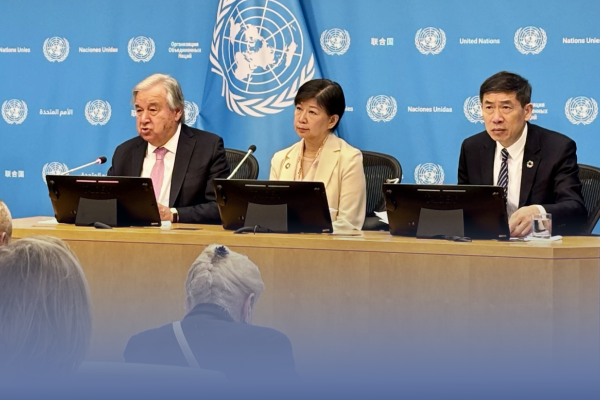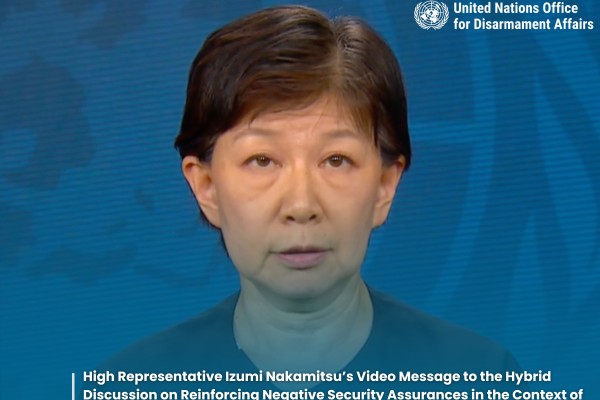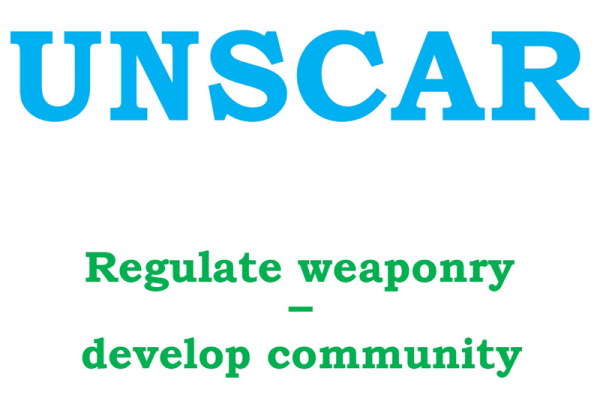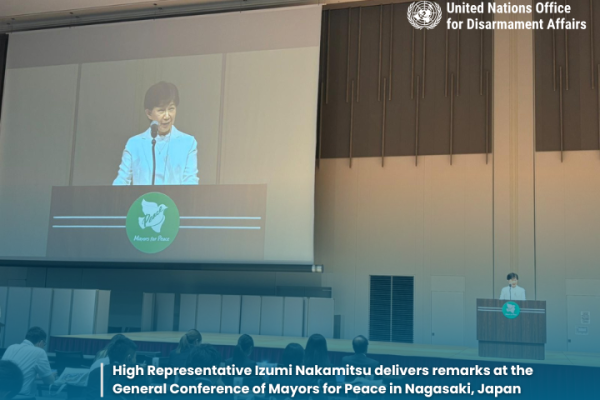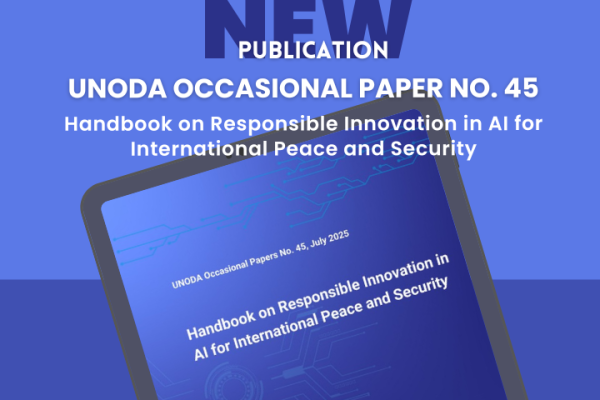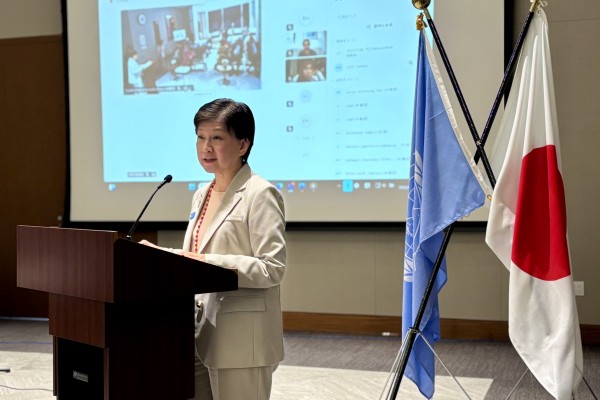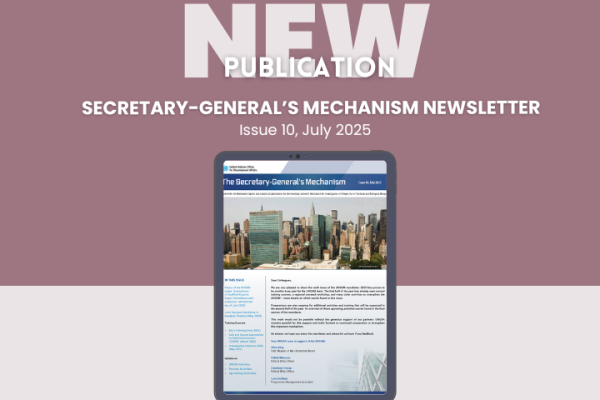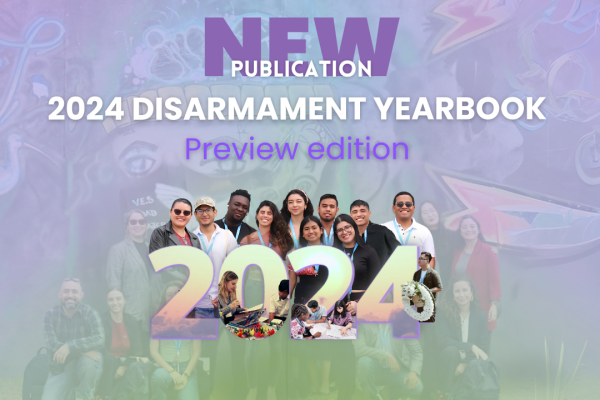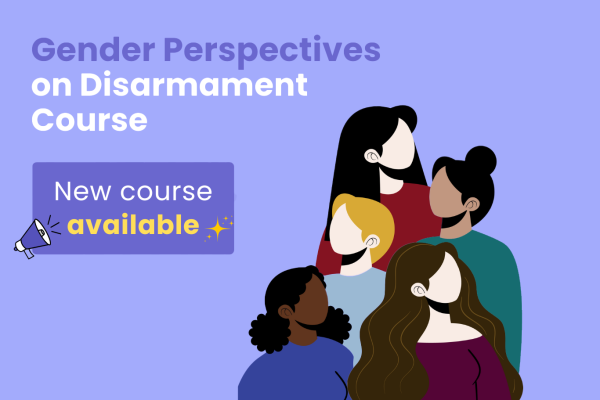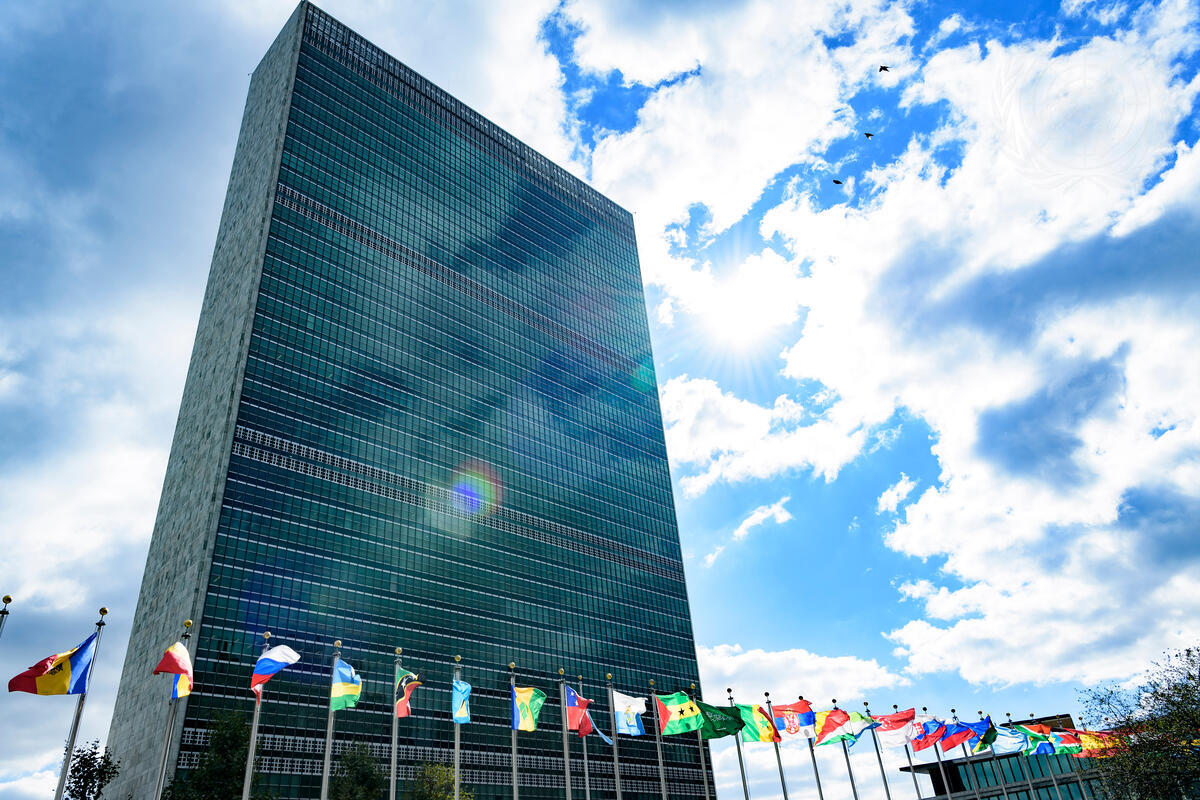
United Nations
Office for Disarmament
Affairs
Spotlights
See the top, latest stories and events coming from UNODA.
Updates
See the top, latest stories and events coming from UNODA.
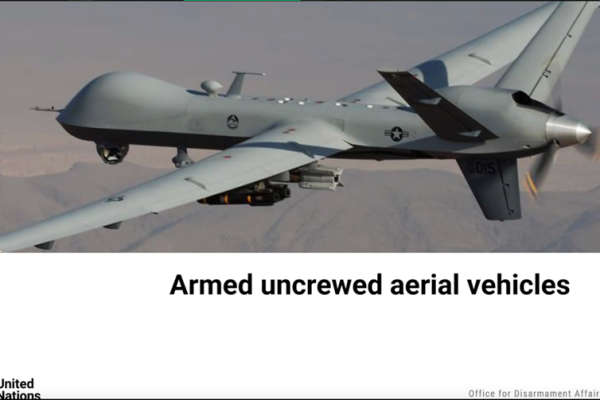
African diplomats and experts reflect on developments in science and technology and their implications for international peace and security and on the Continent
On 17 September, the United Nations Regional Centre for Peace and Disarmament in Africa (UNREC) convened a virtual regional briefing on Security and Technology for African diplomats and experts. The objective was to prepare delegates, both in New York and in capitals, for the upcoming 80th session of the First Committee of the General Assembly scheduled for October in New York. The briefing, organized in collaboration with UNODA’s Science, Technology and International Security Unit (STU), unpacked the emerging international peace and security threats posed by artificial intelligence,…
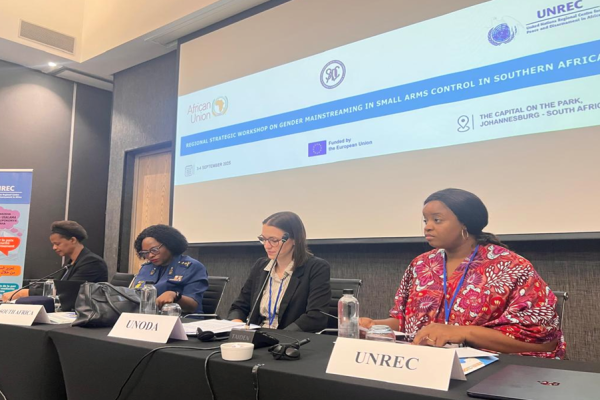
Southern Africa vows to strengthen regional cooperation and foster gender responsive arms control to address the illicit proliferation of Small Arms in the region
Southern Africa vows to strengthen regional cooperation and foster gender responsive arms control to address the illicit proliferation of Small Arms in the region
On 3–4 September 2025, United Nations Regional Centre for Peace and Disarmament in Africa and the South African Development Community co-hosted a Regional Strategic Workshop in Johannesburg on gender mainstreaming in small arms control in Southern Africa. The workshop aimed to: (i) build Member States’ capacity to develop gender-responsive policies and programmes for implementing the UN PoA; and (ii) strengthen…
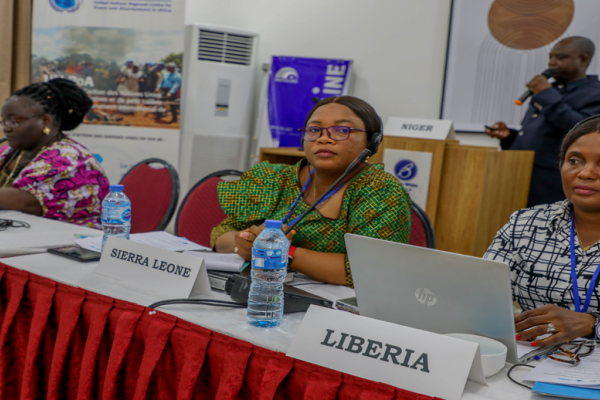
West African countries meet to advance gender-responsive arms control at a Regional Strategic Workshop
West African countries joined forces to advance gender-responsive arms control at a Regional Strategic Workshop
Abuja, Nigeria, 6–7 August 2025
Co-organized by UNREC and ECOWAS, the workshop aimed to raise awareness and strengthen national capacities to design and implement gender-sensitive arms control initiatives. Over 40 participants—including 20 women—from 12 ECOWAS Member States attended, alongside representatives from ECOWAS Commission (Political Affairs, Peace and Security; Gender; Early Warning), WAEMU, the EU, and UN entities (UN Women, UNODC, UNMAS, UNOWAS…
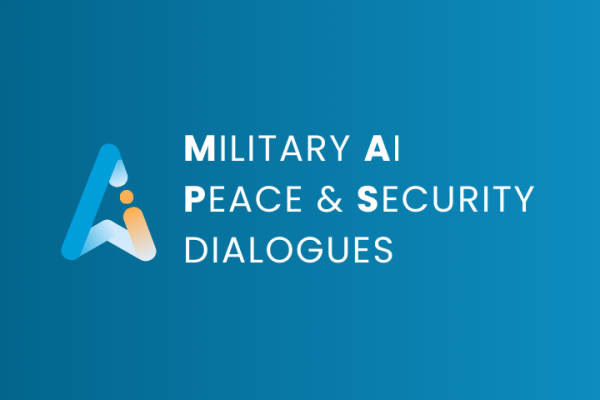
Key Takeaways of The Military AI, Peace & Security Dialogues 2025
Key Takeaways of The Military AI, Peace & Security Dialogues 2025
Download the PDF version here
The 2025 Military AI, Peace & Security (MAPS) Dialogues, convened by the United Nations Office for Disarmament Affairs (UNODA) and funded by the Republic of Korea, aim to provide a platform for States to share knowledge and raise awareness about the international peace and security implications of AI in the military domain. The initiative serves ongoing multilateral discussions by…
Events and Announcements
See the top events and announcements from UNODA.
Meetings and Events
Announcements
SG Statements
HR Statements
Press Releases
ODA at a glance
UNODA supports the development and implementation of practical disarmament measures after a conflict, such as disarming and demobilizing former combatants and helping them to reintegrate in civil society.
Established in January 1998
United Nations ODA was established in January 1998 as the Department for Disarmament Affairs which was part of the SG’s programme for reform in accordance with his report to the General Assembly (A/51/950).
Supports General and complete disarmament
The Office for Disarmament Affairs supports multilateral efforts aimed at achieving the ultimate goal of general and complete disarmament under strict and effective international control. The mandate for the programme is derived from the priorities established in relevant General Assembly resolutions and decisions in the field of disarmament, including the Final Document of the Tenth Special Session of the General Assembly, the first special session devoted to disarmament (resolution S-10/2).
Provides support in the area of disarmament
UNODA provides substantive and organizational support for norm-setting in the area of disarmament through the work of the General Assembly and its First Committee, the Disarmament Commission, the Conference on Disarmament and other bodies. It fosters disarmament measures through dialogue, transparency and confidence-building on military matters, and encourages regional disarmament efforts; these include the United Nations Register of Conventional Arms and regional forums.
Provides information to Member States
UNODA provides objective, impartial and up-to-date information on multilateral disarmament issues and activities to Member States, States parties to multilateral agreements, intergovernmental organizations and institutions, departments and agencies of the United Nations system, research and educational institutions, civil society, especially non-governmental organizations, the media and the general public.
Structure of ODA
The main parts of the Office for Disarmament Affairs, the Security Council, the Economic and Social Council, the Trusteeship Council, the International Court of Justice, and the UN Secretariat. All were established in 1945 when the UN was founded.
Weapons of Mass Destruction
Support to multilateral disarmament and non-proliferation efforts with respect to weapons of mass destruction (WMD).
Conventional Arms
Focusing disarmament and arms control efforts on all weapons not considered WMD, including small arms and light weapons (SALW).
Regional Disarmament
The enhancement of global disarmament and international peace and security through the support and promotion of regional disarmament efforts.
Emerging Challenges
Include UNODA’s work in science and technology, AI, autonomous weapons, ICT and outer space, among other areas.
Cross-cutting issues
Include UNODA’s work in education, youth, gender, counter-terrorism the environment, among other areas.
Watch and Learn
Video and audio from across the United Nations and our world-wide family of agencies, funds, and programmes.
What is disarmament?
Throughout history, countries have pursued disarmament to stop arms races, build trust, and protect people from harm. Disarmament has been central to the work of the United Nations since its founding, and it is critical for building a more secure and peaceful world. But what actually is disarmament? This video introduces audiences to the ideas and concepts behind disarmament and arms control.
How does disarmament and arms control work?
This video takes a look at the processes and mechanisms behind modern disarmament and arms control, and how we work together to realise disarmament goals.
How to engage
In this video we look at how individuals can engage with disarmament, and the importance of strengthening cooperation and coordination at all levels. We also look at the need to engage with more diverse groups to bring new perspectives, expertise and ideas to the table.
Disarmament in the 21st Century
This video introduces audiences to “Securing our Common Future”, the Secretary-General’s Agenda for Disarmament. The Agenda is based on four key pillars designed to bring the objectives of disarmament into the 21st century. Examining each of the pillars, this video looks at how we approach disarmament today.
Disarmament and the Sustainable Development Goals
Here we take a look at the vital role disarmament and arms control play in achieving the sustainable development goals.

